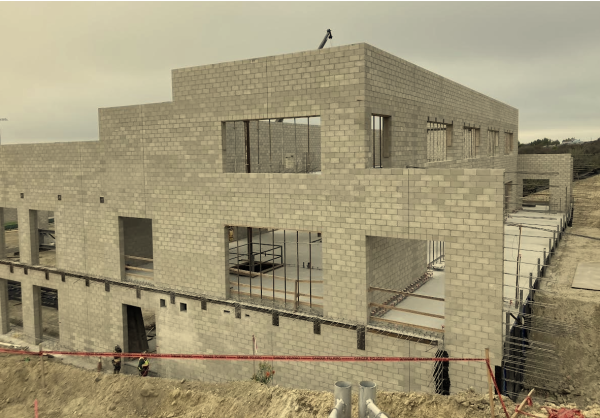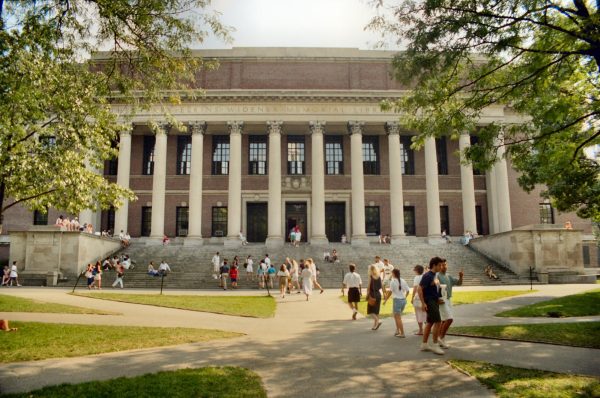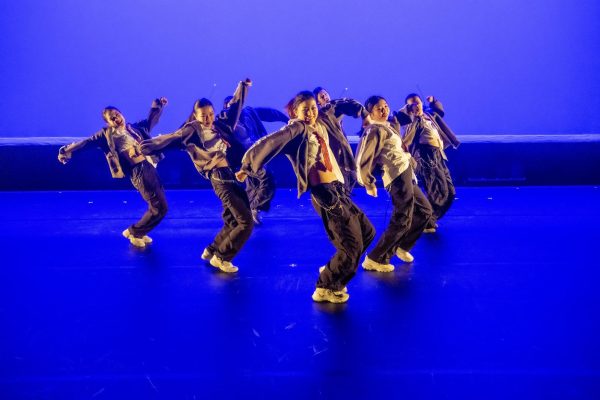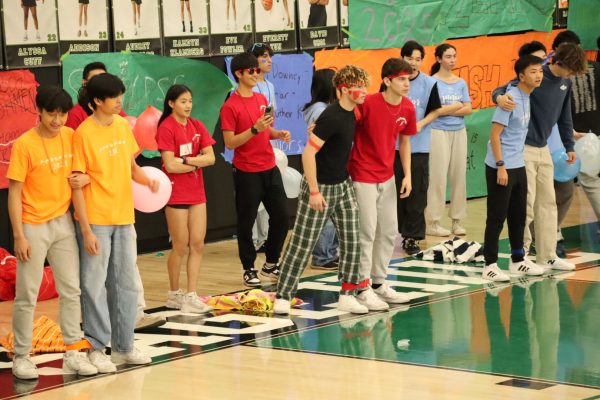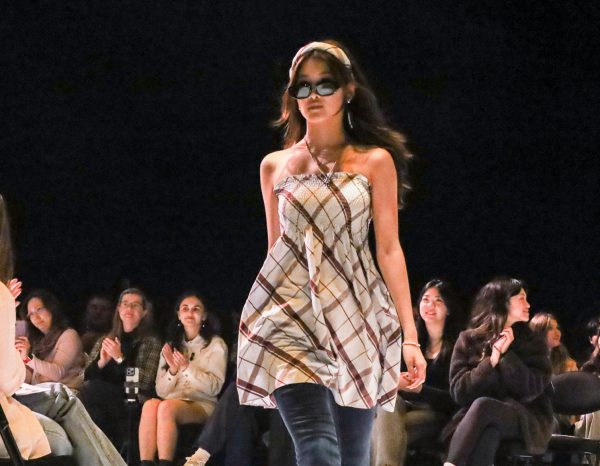Students Conduct a Mock Election
Hosting a mock election in honor of the real election Nov. 8, AP Government students partnered with MyBallot Orange County, an organization that promotes youth voting by holding “election-like” events to give a taste to the power of citizen voting, and attracted a 60 percent turnout.
The ballot contained presidential candidates from all parties, several state propositions and one proposition that applied to Sage Hill.
Dem. Hillary Clinton gained 53 percent of the vote, Rep. Donald Trump followed with 30 percent of the vote.
Proposition 62 (repeal death penalty) passed with 57 percent of the vote. Proposition 64 (legalization of marijuana) was also passed with 63 percent of the vote.
Sage Hill’s proposition (changing the school schedule to three Wednesdays a week) was defeated with 95 percent of the vote.
From 8 a.m. in the morning to 12:30 p.m., the upper library lobby was a bustling area of students, faculty and poll workers voting on digital screen ballots with turn dials and, coincidentally, Sage-themed green screen protectors.
So, why did Sage host a mock election? Nicolle Bradshaw, Sage’s AP Government and Psychology teacher, believes in the importance of exposing students to elections.
“Elections like 2000 are a good reminder that it can come down to the vote of 537 citizens,” she said.
Bradshaw is right. That election that year was so close between George W. Bush and Al Gore, it was taken to the House of Representatives to be decided.
“This is an important election,” Bradshaw reminds us, “but no more important than other elections,” she explains. “It’s important to keep in mind there’s always hype and it’s a matter of perception, a majority of elections claim the ‘stakes have never been higher’.”
Nowadays, a lot of people have seemed to pick up the term, “a vote for a third party is a vote for Trump.” As a long-time voter, Bradshaw shuts that down.
“Absolutely not,” she argues. “In fact, I don’t like that saying, but you know who does? The two party system. That logic of ‘if you are not with us, you are against us,’ is dangerous.”
Bradshaw is also a strong advocate of exercising your right to vote, your way.
“The candidates need to earn your vote, and if they don’t, cast your vote as you wish, not what the Party is telling you to do.”
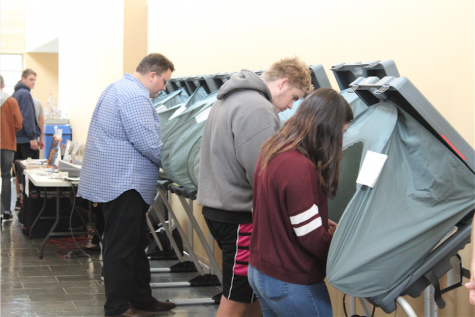
The mock election gave Sage students who are interested in this election cycle, yet are unable to vote, a chance to partake in a democracy.
Junior, Capri Campeau, believes it was important to have a school-wide vote.
“The students at Sage are very politically active. We are the next generation of voters. I think a lot of people didn’t understand that there were other things to vote on other than the president.”
Although Campeau is not an eligible voter, she explains her first time voting: “It took me a lot longer deciding what I wanted to vote for and wanted to pass. I thought it was interesting to be introduced to that before the real thing.”
When asked if she was going to partake in 2020 election cycle, Campeau said she is “absolutely going to vote in the next election.”
Senior Caden Sheetz shared his thoughts on the importance of hosting a mock election. “It embraces political conversation. At this point it is good to start formulating some sort of political foundation,” Sheetz says, “we [youth] don’t have a very high voter turnout rate, so if we can increase that, it would make a more democratic and better functioning society.”
As an eligible voter, Sheetz says he will vote on Nov. 8.
Although this election is close to going off the rails, to those born post-November 1998, don’t give up. In a few short years, your generation’s vote will be crucial. And to those who are eligible to vote on Nov. 8, get out and exercise your right to vote.
Your vote does make a difference, and with an election as exciting as this, how could you resist?


